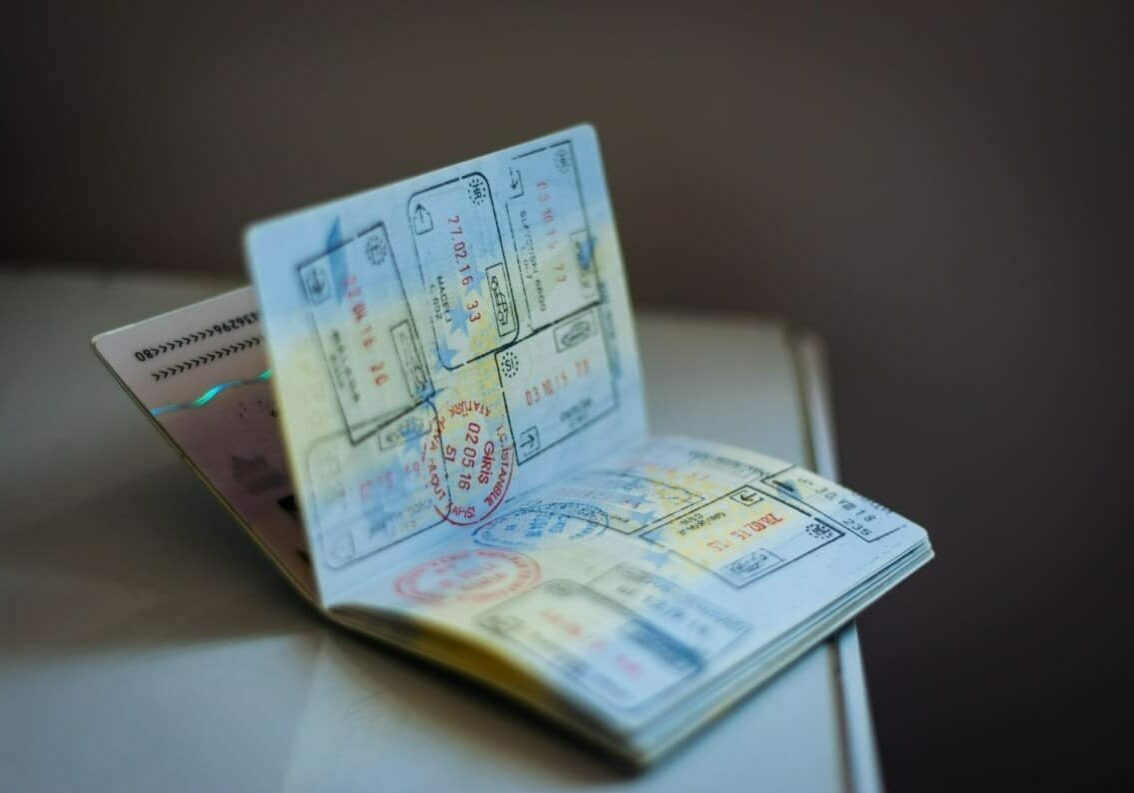
Many countries, such as the Canada and Portugal, grant citizenship to any child born on their soil. This is a principle known as jus soli or “right of the soil.” However, some countries may have a few restrictions regarding birthright citizenship.
This guide will take you through everything you need to know about birth tourism, including:
What is birth tourism?
Birth tourism involves traveling to another country to give birth and obtain certain benefits for both the child and the parents. Parents often choose this option to secure future benefits for their children, such as access to education, healthcare, and the right to live or work in the country.
Birth tourism is associated with two key terms: Jus Soli (“Right of the Soil”) and Jus Sanguinis (“Right of Blood”), which are usually used under the umbrella term birthright citizenship.
1. Jus Soli (“Right of the Soil”)

Governments determine Jus soli in two ways:
Unrestricted birthright citizenship: Children born in the country’s territory are automatically citizens.
Restricted birthright citizenship: In addition to being born in the country’s territory, the person must also meet conditions such as:
- At least one parent must have been born in the country.
- Must have two citizen parents.
- At least one parent must have been physically present in the country for a year before birth.
- The father must have been born in the country.
- Must have a citizen mother.
2. Jus Sanguinis (“Right of Blood”)
In contrast to jus soli, jus sanguinis is a principle that grants citizenship based on the nationality of one or both parents, regardless of the place of birth. For example, many European countries grant citizenship to children based on their parents’ nationality rather than their birthplace. Some of the birthright citizenship requirements may include:
- Both parents were born in the country.
- One parent was born in the country and has a current residence permit.
- A member of the paternal side must be or have been a citizen.
- Parents must be in a legal marriage.
- Parents must be physically present in the country for a specific number of years.
10 Best Countries for Birth Tourism
1. Portugal
Portugal is a noteworthy destination for birth tourism because of its favorable citizenship laws, particularly for children born on Portuguese soil. Whether the parents are non-residents or residents, Portugal offers significant benefits to both the child and the parents, provided certain conditions are met.
Conditions for birthright citizenship
Children born in Portugal can acquire Portuguese citizenship if at least one parent has been a legal resident in the country for at least one year before birth or one parent is a Portuguese citizen.
Hospital costs
- Public hospitals in Portugal usually offer free or low-cost services for residents.
- Private hospitals can charge between €4,000 and €7,000 for delivery services, depending on the complexity of the birth and the hospital chosen.
2. Ireland
Ireland used to offer unconditional jus soli citizenship until 2005. Since then, it has implemented restrictions, but it remains an essential country for birth tourism due to its favorable conditions for residency and eventual citizenship.
Conditions for citizenship by birth
The primary condition for a child to obtain Irish citizenship by birth is the legal residency status of the parents. Specifically:
- If neither parent is an Irish citizen, the child can still acquire citizenship if one or both parents legally resided in Ireland for three out of the four years immediately preceding the birth. This residency must be legal, meaning the parents must have proper immigration status, such as work permits or EU/EEA residency rights.
- Temporary residency forms, such as student visas, do not count toward this requirement.
Hospital costs
- Public hospitals in Ireland offer low cost or free services for residents, particularly those covered by the national healthcare system.
- Private hospital costs for non-residents can range from €4,000 to €10,000 or more, depending on the type of delivery and level of care required.
3. Spain
Spain is another famous country for birth tourism but does not grant automatic birthright citizenship. In Spain, citizenship by birth is conditional, but the country stands out because it benefits the parents.
While Spain does not offer automatic citizenship or residency, having a child with Spanish citizenship can help with the parent’s residency application under family reunification laws. Spain provides legal routes for family members of Spanish citizens to reside in the country, but this process is not automatic and requires legal applications.
Conditions for citizenship by birth
If neither parent is a Spanish citizen, the child can be eligible for Spanish citizenship after one year of continuous residency in Spain.
Hospital costs
- For residents and those covered by Spain’s national health system, childbirth in public hospitals is free or low cost. Nonresidents may need to pay fees, but expenses are still relatively low.
- In private hospitals, the cost of childbirth can range from €3,000 to €8,000. depending on the type of delivery and level of care required
4. Luxembourg
Luxembourg offers also conditional citizenship by birth. While children born in the country can gain citizenship, it still depends on specific conditions related to the parent’s residency status. Nonetheless, having a child born in Luxembourg with citizenship can help parents apply for a residency permit through Luxembourg’s family reunification laws.
Luxembourg has a strong passport, and as an EU country, it makes for an even more attractive destination for birth tourism.
Conditions for citizenship by birth
A child can obtain birthright citizenship in Luxembourg if:
- 18 years old, and both parents were physically present in Luxembourg in the 12 months preceding birth
- 18 years old and has lived continuously in Luxembourg for the five years preceding their 18th birthday
Hospital Costs
- Public healthcare is covered under Luxembourg’s national health insurance system.
- For non-residents, private hospitals can charge between €5,000 and €8,000, depending on the type of delivery and care required.
5. Greece
Greece is another European country with restrictive jus soli policies regarding citizenship. Children born on Greek soil to foreign parents do not automatically acquire Greek citizenship at birth unless specific conditions are met.
Greece has based its birthright citizenship laws on jus sanguinis (right of blood), meaning that citizenship is mainly passed through Greek ancestry. However, what makes Greece a great destination for birth tourism is its strong passport within the European Union and the benefits for the parents.
If the parents are legal residents of Greece, they can continue to reside there, and the child’s eventual acquisition of citizenship could strengthen the family’s ties to Greece. Parents who are legal residents can apply for permanent residency after five years of continuous residence in Greece
Conditions for birthright citizenship
- If the parents are foreign nationals, the child can apply for Greek citizenship if the parents have legal residency and the child completes at least six years of schooling in Greece.
Hospital costs
- Public hospitals are low-cost or free for residents under Greece’s national health insurance system.
- For non-residents or those opting for private care, childbirth costs can range from €3,000 to €6,000 or more, depending on the type of delivery and the level of care required.
6. Italy
Similar to Greece, citizenship in Italy is also passed down through Italian ancestry. This means citizenship by birth is highly restricted. Parents of children who may qualify for citizenship at 18 do not gain any automatic rights themselves. Non-residents would need to pursue residency through other legal channels, such as work visas, family reunification, or through immigrant investor programs.
Conditions for citizenship by birth
If the parents are foreign nationals, the child can apply for Italian citizenship at the age of 18, provided they have lived in Italy continuously from birth or at the age of 21 or older and were permanently living in Italy for at least three years since 18 years old.
This creates a delayed pathway to citizenship that requires long-term residency and integration into Italian society. Without meeting these residency and continuous living conditions, the child may only obtain Italian citizenship through other means, such as naturalization, which involves further residency and legal requirements, or Italian citizenship by descent.
Hospital costs
- Public hospitals offer low-cost or free services for residents under Italy’s national health insurance system (Servizio Sanitar io Nazionale, SSN).
- For non-residents or those choosing private care, childbirth costs can range from €3,000 to €7,000, depending on the hospital and type of delivery.
7. Canada
Canada is another country that offers unconditional citizenship by birth. This means the Canadian system grants automatic citizenship to any child born on Canadian soil, regardless of the parents’ nationality or legal status.
Conditions for birthright citizenship
- The Canadian Citizenship Act of 1946 states that any child born in Canada automatically acquires Canadian citizenship at birth. This applies to all children born in the country, regardless of the parent’s immigration status, whether they are tourists, temporary workers, or undocumented immigrants.
- However, foreign diplomats stationed in Canada do not automatically receive citizenship.
Hospital costs
- Residents are covered under Canada’s public healthcare system, which generally provides these services for free.
- For non-residents, childbirth costs can range from CAD 10,000 to CAD 25,000, depending on the type of delivery and any additional medical services required. This includes fees for hospital stays, doctors, and any necessary medical procedures.
8. Mexico
Another great birth tourism destination is Mexico, which also offers unconditional birthright citizenship. Mexico also offers pathways to residency to parents with children born in Mexico, making it an appealing option for families looking to get dual citizenship and residency opportunities in Latin America.
Conditions for citizenship by birth
- Mexico practices unconditional jus soli, meaning that any child born in Mexico automatically acquires Mexican citizenship at birth. This applies to all children born in the country, regardless of the parents’ nationality, immigration status, or residency.
- There are no further conditions or applications required for the child to gain Mexican citizenship, making this process straightforward for birth tourism purposes
Hospital costs
- Public hospitals generally offer lower costs, and in some cases, childbirth services may be free for residents.
- For non-residents opting for private care, costs can range from USD 2,000 to USD 5,000, depending on the hospital and type of delivery.
9. Antigua and Barbuda
Antigua and Barbuda are considered good options for birth tourism because they also grant unconditional citizenship by birth, but a few requirements need to be met. Another attractive aspect about that country is that parents can apply for residency and, after two years, for citizenship and an Antigua and Barbuda passport.
Conditions for citizenship by birth
- Antigua and Barbuda also grants automatic citizenship to any child born in the country after October 31, 1981, except for children of foreign diplomats and of foreign parents whose country is at war with the Antiguan and Barbudan sovereign.
Hospital costs
In a private hospital, childbirth ranges from $3,000 to $5,000.
10. Costa Rica
Costa Rica is a beautiful destination, and fortunately, the country grants automatic citizenship to children born there. It also gives parents the advantage of applying for permanent residency through family reunification laws. After seven years, they can apply for citizenship.
Conditions for citizenship by birth
Under the terms of Article 13 of the Constitution and Article 1 of the Options and Naturalizations Act, those who are eligible for birthright nationality include: Persons born in Costa Rica, whose birth was recorded in the Civil Registry by the parent when a minor or by themselves before their 25th birthday.
Hospital costs
The cost of a private hospital birth costs about $3,500- $6,000, depending on your choice of hospital, birth (natural vs. cesarean), and other factors.
Benefits of Birth Tourism
Birth tourism can seem more advantageous for the child born in a specific country, but parents may also benefit from expediting their residency permits and eventually getting second citizenship.
Category | Benefits for the Child | Benefits for the Parents |
Citizenship | Automatic citizenship in the birth country (if applicable) | Easier access to long-term residency or citizenship in some cases |
Travel Freedom | Visa-free or easier access to many countries | Easier travel to countries where the child holds citizenship |
Education | Access to local public education systems | Potentially reduced cost of education for the child |
Healthcare | Access to healthcare services in the birth country | Peace of mind regarding the child's healthcare |
Dual Citizenship | Opportunity to hold dual or multiple citizenships | Potential benefits of the child's dual citizenship for the family |
Future Residency | The child can sponsor the parents for residency in some countries | Option to plan future family immigration |
Five Risks Associated with Birth Tourism
The risks of birth tourism include:
- Legal issues: Some countries may scrutinize visitors suspected of birth tourism, and violating visa terms could result in deportation or bans on future entry.
- Visa denial: Authorities might deny entry if they suspect the purpose of travel is to give birth, especially without a proper visa.
- High medical costs: Medical expenses can be significant, especially if complications arise, and many countries require upfront payment for foreigners.
- Residency complications: Parents typically do not gain residency or citizenship automatically, and navigating immigration laws can be challenging.
- Child’s legal status: Some countries may later impose restrictions on the child’s citizenship or rights, and the child may face dual nationality complications.
Recently, some countries have also clamped down on birth tourism, especially the United States. The country used to be lauded for its generous view of expectant mothers who give birth on American soil. However, in 2020, major changes were made to the B Nonimmigrant visa to deny entry to those suspected of traveling for the sole purpose of birthing a child in the U.S. for citizenship.
This led to expectant mothers offering large sums of money to organizations to give birth in America and then promptly returning to their home countries soon after, citizenship for their child in hand. There have also been people convicted of running so-called “birth tourism” schemes. So, it’s important to check the most updated laws in the country you’re traveling to beforehand to ensure you’re in line with laws and regulations.
Explore Global Citizenship: Key Insights and Options
Navigating the complexities of citizenship, passport acquisition, and immigration can be a daunting task. Whether you're considering a move for business, personal, or security reasons, understanding your options is crucial. At Global Citizen Solutions, we specialize in providing clear, comprehensive guidance in these areas. Our expertly crafted articles offer deep insights and comparisons to help you make informed decisions.
-
Exploring Citizenship by Investment: For those interested in acquiring citizenship through investment, our guide on citizenship through investment breaks down the process, benefits, and key considerations, helping you understand how this path might suit your personal and financial goals.
-
Comparing Citizenship by Investment Programs: Choosing the right program is vital. Our comprehensive comparison of CBI programs worldwide provides a clear, side-by-side look at what each country offers, aiding you in finding the perfect match for your needs.
-
Top Citizenship by Investment Programs: To further assist your decision-making, we've curated a list of the best citizenship by investment programs available. This resource is invaluable for anyone looking to understand which programs offer the most value, security, and benefits.
At Global Citizen Solutions, we're committed to helping you navigate the path to a new citizenship with ease and confidence. Explore our resources to gain a clearer understanding of your options and embark on your journey towards global citizenship.

Frequently Asked Questions About Birth Tourism
What is birth tourism?
Birth tourism refers to traveling to another country to give birth, with the intention of securing citizenship for the child in that country.
Is birth tourism legal?
The legality of birth tourism depends on the country. While some countries do not explicitly prohibit it, others may have restrictions or specific visa requirements for foreign visitors giving birth.
Which countries offer citizenship by birth?
Countries like the United States and Canada offer citizenship to children born on their soil, regardless of their parent’s nationality.
Can parents gain citizenship through birth tourism?
In most cases, parents do not automatically gain citizenship by giving birth abroad, but in some countries, the child can later sponsor their parents for residency or citizenship.
What are the benefits of birth tourism for the child?
The child may gain automatic citizenship, access to local healthcare and education, and future travel freedom with fewer visa restrictions.
Are there risks associated with birth tourism
Yes, risks include potential legal issues, high medical costs, and challenges in obtaining visas or residency in the parents’ birth country.
How can birth tourism lead to permanent residency for parents?
Birth tourism can sometimes lead to permanent residency for parents if the child is granted citizenship in the country of birth. Some countries allow parents to apply for residency after the child obtains citizenship, or after meeting specific criteria like length of stay, economic contributions, or maintaining ties to the country. However, this process varies by country and is not guaranteed.



